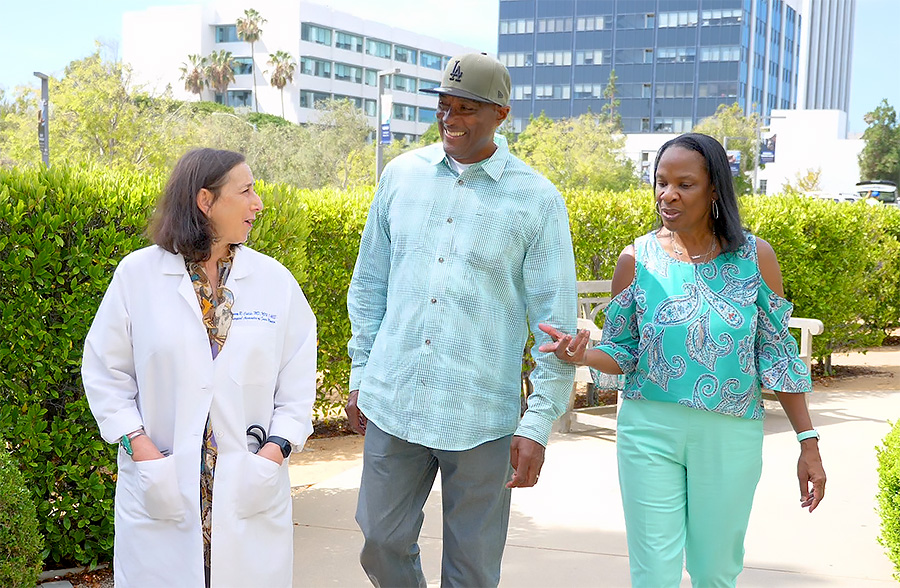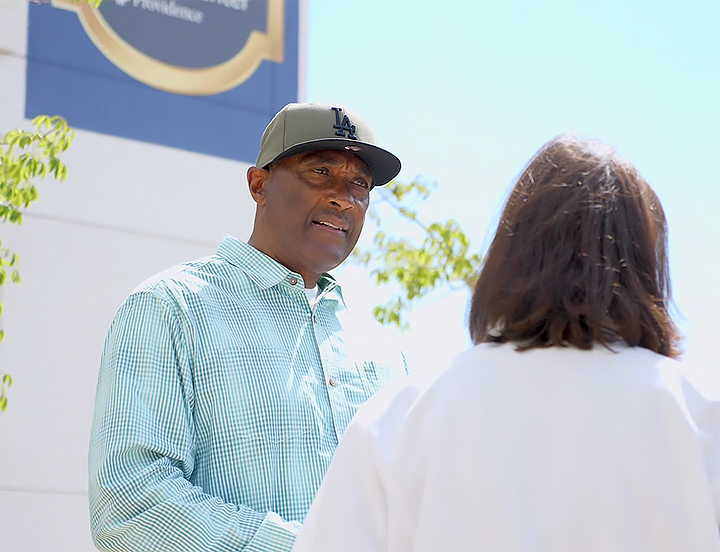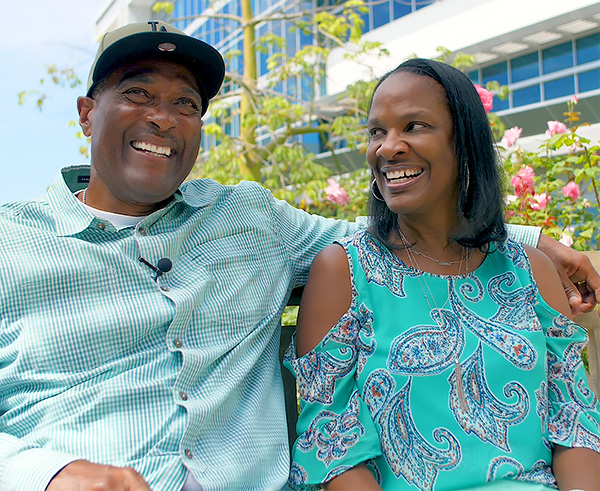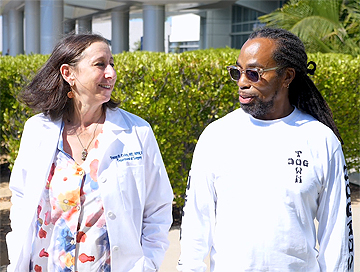
Meet Wade Stevenson, a stage 2 colon cancer survivor.
What is apparent about Wade’s personality is his warm smile and calm demeanor. His story of avoiding critical care is not unique. In fact, men typically require a bit of a push when it comes to seeing their doctor regularly or when they experience an ongoing symptom, whether from their spouse, a trusted friend, or a family member. Wade needed lots of encouragement, which came in the form of a reminder from his wife, “’til death do us part,” and his family who all came to Saint John’s Health Center prior to his surgery and COVID lockdown. Fortunately, Dr. Tracey Childs was there to support Wade and his family, bringing to light the care path she recommended.
“Really?… I’m not doing chemo, I’m not doing radiation, you’re not going to cut on me. You’re not doing none of that.”
– Wade Stevenson
Stand Up to Cancer (SU2C), a national support organization, recently assembled a team of nationally recognized doctors and institutions such as Saint John’s to help address colorectal cancer health inequity (See Stand Up to Cancer with Dr. Anton Bilchik, Co-leading the Colorectal Cancer Health Equity Dream Team), focusing on African American communities to develop pathways for early diagnosis and treatment intervention.
I had to let it be his decision… I needed him to come to terms with his diagnosis.
– Marilyn Stevenson
Listen to Wade and Marilyn discuss the details of their journey.
Wade agrees to receive treatment.
Once Wade accepted that treatment would be best, the process started. Dr. Tracey Childs, Chief of Surgery at Providence, Saint John’s Health Center, and Adjunct Associate Professor of Surgery at Saint John’s Cancer Institute, who was referred to by Dr. Rudolph Bedford, Wade’s gastroenterologist, spearheaded his treatment. Wade received surgery, chemotherapy, and radiation—a multi-disciplinary approach that is proven to be highly effective for many advanced cancers.
We take our health for granted until it is our health.
– Wade Stevenson
“They removed the whole colon,” Wade explains in his video interview. Removing the entire colon (colectomy) was the best option for Wade to retain as much bowel control as possible. Wade had to wear a colostomy bag after his total colectomy, which is common after colon surgery. Most people who require a colostomy bag only need it while the intestine heals, while some may need a permanent ostomy. Throughout Wade’s journey, his wife Marilyn was there.
Wade described how he did not suffer many of the common symptoms associated with his cancer treatments, including fatigue and nausea, as well as the possibility of developing a rash from the radiotherapy. Wade described the doctors as being “amazed” that his surgical recovery, chemotherapy, and radiation were going so well.
Wade makes a friend who also struggled with his cancer diagnosis
… It’s a good feeling because I think I told [Elridge] what I was going through, but I also listened. It made me think about what I went through… It made me feel good to be able to walk him through it.
– Wade Stevenson
Wade still communicates with Elridge, which has helped them both arrive at a better outcome mentally and physically. This process of patients helping patients was co-developed with another patient of Dr. Childs, Betsy Smith, a stage 3 rectal cancer survivor who, after many years, actively supports cancer patients on their journey.
Colorectal Cancer Facts
In 2022, 151,030 colon and rectum cancers were diagnosed: 80,690 were men, and 70,340 were women. Second to lung cancer deaths, colon, and rectum cancers are still the 2nd leading causes of cancer deaths in the US. With 28,400 men, and 24,180 women in 2020. The relative survival rate is 65.1 percent and affects Asian pacific islanders, Native Americans/Alaskan natives, and non-Hispanic black communities predominantly.2
Because of how many people are being diagnosed with late-stage colon cancer, the screening age for colorectal cancer has been recently reduced to 45 years of age from 50 years; people are not catching it early enough. According to Dr. Anton Bilchik, Chief of Surgery, and GI surgical oncologist at Saint John’s Health Center, the age should really be 40 years old, which would catch more cancer in its earliest stage.




